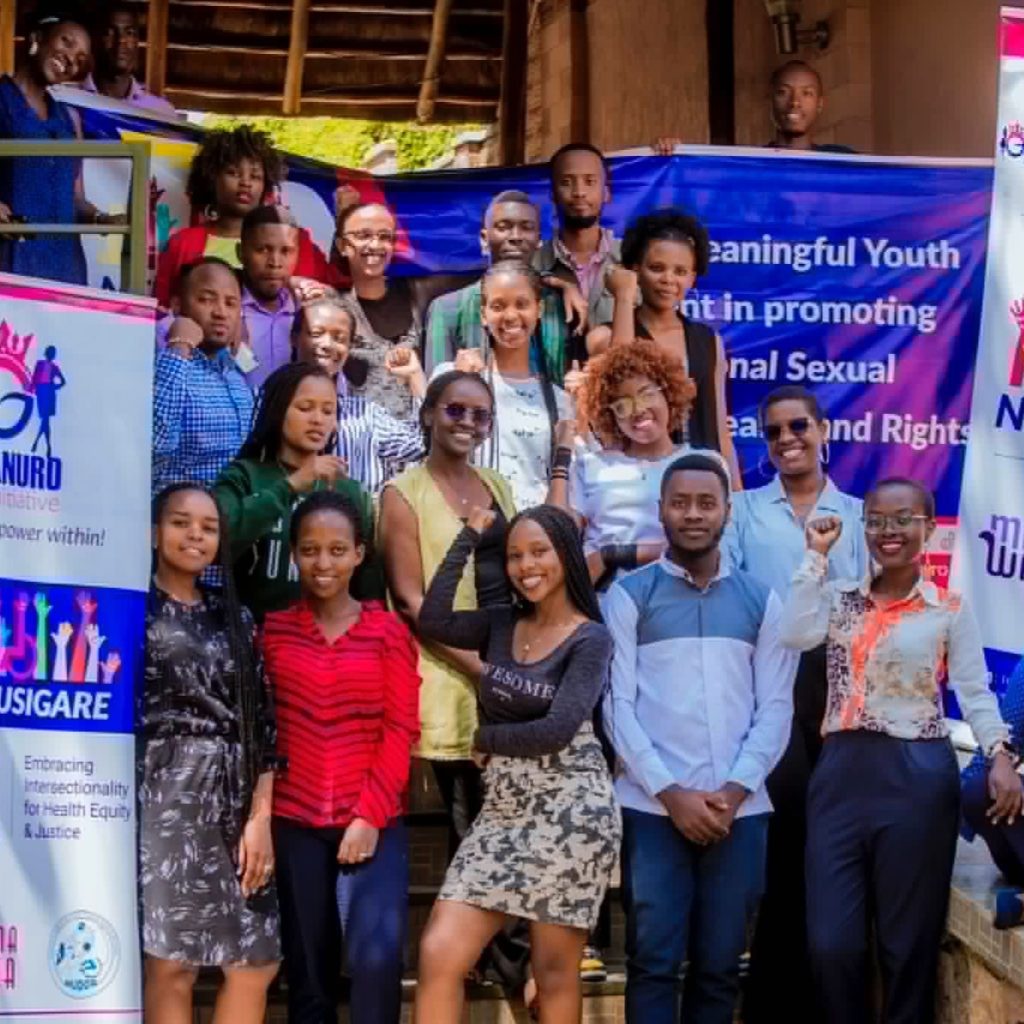Marie Ange Raissa Uwamungu
Founder of Impanuro Girls Initiative (IGI) striving to improve women and girls’ lives
Marie Ange Raissa Uwamungu
Marie Ange Raissa Uwamungu is a young trailblazer in gender equality and human rights. She has beaten all the odds from living life in a slum to becoming the successful founder and executive director of the civil society organisation Impanuro Girls Initiative (IGI). Through being aware of the significant disparities that women and girls face when it comes to accessing sexual and reproductive health and rights (SRHR) information and services, Impanuro Girls Initiative (IGI) applies an intersectional approach to ensure no one is left behind.
Read more →
Founded in 2017, Impanuro Girls Initiative (IGI) is a young women-led civil society organisation in Rwanda that fosters women empowerment and builds girls’ agency. One of their key focus areas is SRHR, where they work to improve knowledge, increase access to information and services, and work on the prevention and response of sexual and gender-based violence. The Impanuro Girls Initiative (IGI) is also a Rwandan collaborating partner in the Make Way programme.
Seeking an education
Raissa grew up as an orphan in a slum area in Rwanda. She witnessed firsthand the multiple challenges that arise for girls and young women growing up in the slums: teenage pregnancies, gender-based violence, poverty and more. Raissa was fortunate enough to be raised by her supportive maternal family who continually encouraged her to seek an education so she could live a life outside the slum. But she frequently observed that other girls and young women were not given the same support and opportunities as her to flourish. She wanted to make sure that no matter someone’s background, girls and young women could still thrive.
Once finishing high school, Raissa was awarded a scholarship to attend university, as well as the opportunity to attend the Young African Leaders Initiative (YALI). At YALI, she collaborated with and learnt about young African leaders positively changing their communities. It was the first time in her life where she met people working for social change – work she aspired to do – and learnt how to tangibly achieve impact in her community. It set the groundwork for her own work as a young African leader. After graduating, Raissa immediately started the Impanuro Girls Initiative (IGI) to help change the lives of girls and young women for the better. To ensure that all girls and young women are given the same opportunities, Raissa and her team use an intersectional approach.
Being intentional
Applying an intersectional approach means that you are aware of the opportunities and disadvantages people face because of their specific situations. For Raissa, intersectionality is all about “inclusion, without leaving anyone behind.” Raissa recommends the key to intersectionality is “being intentional.” For example, when creating a safe space for young people to discuss sensitive topics, it’s important that the coordinators share similar experiences and can relate to them. It also comes with acknowledging that not all people are the same. “People come with uniqueness. How are those seen and appreciated?”
Once you have a clear understanding of intersectionality, you can put theory into practice. Raissa explains the kinds of questions that they ask themselves at the Impanuro Girls Initiative (IGI). “If we want a person with a hearing impairment to be part of the meeting, how are we ensuring that they are not left behind? If it is a person with a visual impairment, how do we ensure that they are included in whatever we are doing? It is important to always ask: how are all individuals included in whatever we are doing?” At the office of the Impanuro Girls Initiative (IGI) in Kigali, they even changed the stairs to ensure that the office would be accessible for all.
Raising awareness
Raissa argues the importance of educating oneself about intersectionality. There are still cultural and social norms that hinder understanding of SRHR, especially for youth with compounded vulnerabilities. Without the knowledge about intersectionality, it can be very easy to unintentionally exclude a group of people. At the Impanuro Girls Initiative (IGI) they started training local leaders and duty bearers in intersectionality and SRHR. Raissa explains that they challenged them to share how many young people they actually serve who have identities that could cause vulnerabilities, in terms of sexuality, gender, economic background, etc. Many of the local leaders and duty bearers were shocked to learn that they were leaving many young people behind, especially “because they thought maybe these people do not need any SRHR services.”
Even though Rwanda has progressive policies when it comes to gender equality, Raissa explains that there are sometimes problems when it comes to implementation. “That is because the people who are implementing this policy, sometimes don’t believe in what is written there. This is why the Impanuro Girls Initiative (IGI) raises awareness that each and every person has a right to receive SRHR information and services, without any ‘buts.’ They are entitled to those services.”
Paving the way for SRHR for all
Raissa is convinced that “intersectionality is actually paving the way for SRHR for all.” Currently, there remain individuals and groups of people unaware of anything related to SRHR. Through raising awareness about applying the intersectional approach in SRHR, those often left behind can finally be included. “At the Impanuro Girls Initiative (IGI), we have tried our best to ensure that the people that are within the project understand intersectionality fully and are embracing it fully.” Raissa claims that there are at least 13 organisations currently taking an intersectional approach to their work in Rwanda. “If this number would continue to grow, by 2040 the entire country might actually have awareness on intersectionality and be intentional in terms of including youth with compounded vulnerabilities. Definitely SRHR for all is totally possible.”
Raissa shares that understanding her own intersecting vulnerabilities in her upbringing – as a black child living in a slum area coming from a low-income background – brings to light the young people who are similar to her who also need support and space to grow. Thankfully, Raissa’s maternal family gave Raissa the space to bloom and to be the person she wanted to be. “This is why Impanuro Girls Initiative (IGI) came to actually be the space for girls and young people with different vulnerabilities to also bloom.”






